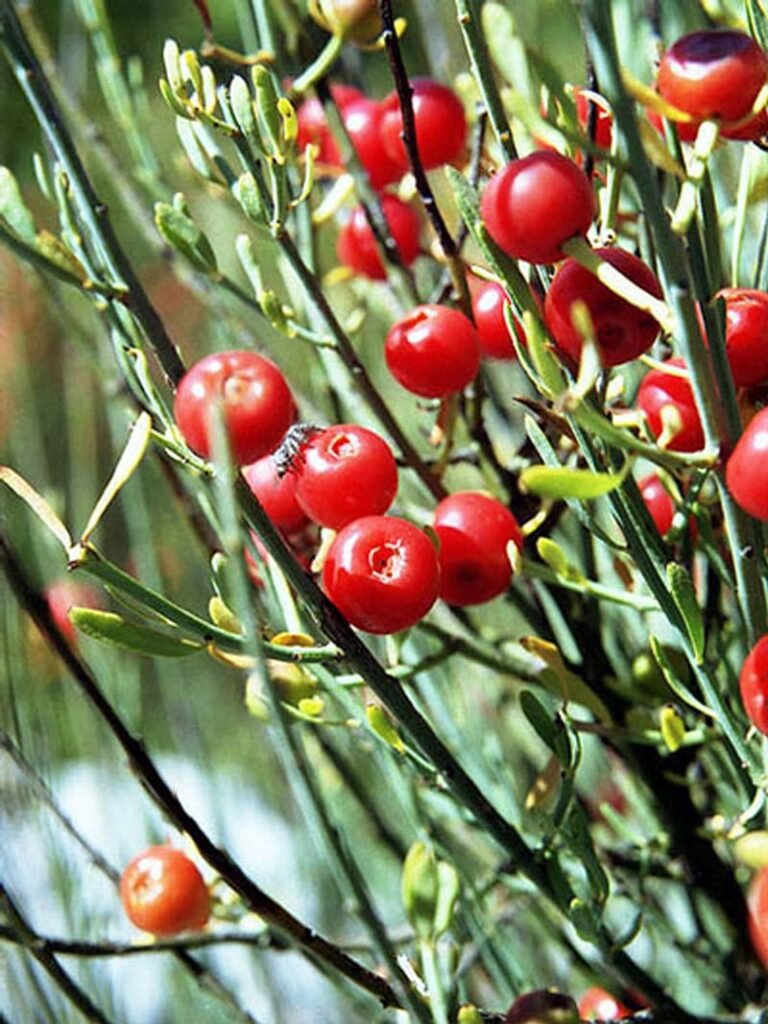
Botanical Name: Ephedra Vulgaris
Kingdom: Plantae
Division: Gnetophyta
Class: Gnetopsida
Family: Ephedraceae
Genus: Ephedra
Species: Ephedra distachya L
Popular Name: Somlatha
Part Used: Dried Branch
Habitat: Drier regions of temperate zone and alpine Himalayas at an altitude of 2,700m to 3,600m
Description
Ephedra is a shrub that grows about 25 cm to 50 cm high. It belongs to the family Ephedraceae and is found on sandy seashores, in temperate climates of both hemispheres. The plant has stamens and pistils on separate flowers. Its fruit has two carpels, with a single seed in each one of them. They are erect, with small leaves. The herb has green stems belonging to a range of species that is native to Central Asia.
Plant Chemicals
The active compound contained in ephedra is ephedrine (naturally occurring amphetamine like compound), which works to stimulate fat burning in the body and provides more energy.
Uses and Benefits of Ephedra
- Ephedra is widely used for acute muscular and bronchial asthma. It is also used as a headache reliever.
- The herb is very often used as an antibiotic, anti-septic, immune stimulator, depurative, digestive, and blood purifier. It also helps produce sweat.
- It promotes the natural ability of the body to fight invading diseases through a natural antibiotic called echinacoside. The benefits of this antibiotic contained in the plant have been compared to penicillin.
- In China, ephedra is known as Ma huang. It is a popular remedy for chills, cough and wheezing. The Chinese also combine it with rehmannia, for treating kidney disorders.
- In the west, the herb is used to remedy asthma and hay fever. It is also used to prevent the onset of colds and flu.
- It proves effective in raising blood pressure, cool down fevers and alleviate rheumatism.
- Ephedra can also be used for losing weight. However, it is important to note here that its dose, for weight-loss, generally exceeds the prescribed safety limit, i.e. 150 mg per day.
- The herb is used to help the white blood cells in the body to produce an infection-fighting substance known as interferon.
- It is believed that the herb was traditionally used by Zen monks in China, to promote calm and concentration during meditation.
Cautions
- While ephedra is considered to be a weight-loss drug, the doses recommended for losing weight mostly exceed the usual prescribed limit.
- Side-effects, such as high blood pressure, rapid heart beat, nervousness, irritability, headache, urination disturbances and insomnia, can be experienced, especially when the herb is consumed as a recreational drug.
- When consumed at higher levels, it can result in cardiac arrhythmias. It is also considered to be highly addictive.
- Anxiety, headaches, restlessness, high blood pressure, and even insomnia, may also be experienced on consuming a very high dose of ephedra.
